#communication skills
Text
Femme Fatale Guide: Game-Changing TED Talks Everyone Should Watch
"How Five Simple Words Can Get You What You Want" by Janine Driver
"Master your Mindset, Overcome Self-Deception, Change your Life" by Shadé Zahrai
"How to talk to the worst parts of yourself" by Karen Faith
"Think before you speak, hacking the secret of communication" by Catherine Molloy
"The Hidden Code For Transforming Dreams Into Reality" by Mary Morrissey
"Don't Believe Everything You Think" by Lauren Weinstein
"The public speaking lesson you never had" by DK
"Programming your mind for success" by Carrie Green
"How to stop screwing yourself over" by Mel Robbins
"Own Your Behaviours, Master Your Communication, Determine Your Success" by Louise Evans
"The psychology of seduction" by Raj Persaud
"Why we're unhappy -- the expectation gap" by Nat Ware
"Think Fast. Talk Smart" by Matt Abrahams
"Increase your self-awareness with one simple fix' by Tasha Eurich
"5 steps to designing the life you want" by Bill Burnett
"Staying stuck or moving forward" by Dr. Lani Nelson Zlupko
"To reach beyond your limits by training your mind" by Marisa Peer
"Emotional laws are the answer for better relationships" by Diana Wais
"Feelings: Handle them before they handle you" by Mandy Saligari
"Cultivating Unconditional Self-Worth" by Adia Gooden
#ted talks#youtube recommendations#self love#cult of personality#self awareness#self reflection#self improvement#communication skills#social skills#life advice#life skills#girl advice#dream girl#girl talk#femme fatale#dark femininity#dark feminine energy#it girl#high value woman#the feminine urge#female power#queen energy#female excellence#high value mindset#self esteem#level up journey#glow up#femmefatalevibe#success mindset#self talk
7K notes
·
View notes
Note
Hello this is just to say that I am very interested in that post you mentioned maybe making about indirect communication!
So to define Direct and Indirect communication with a pair of examples real fast:
Direct communication: "Hey, can you do the dishes?"
Indirect communication: "There's dishes in the sink." (Please wash them.)
Indirect communication tends to trip a lot of ND, but especially Autistic people up because the implied request in the parentheses... doesn't always come through. So you don't do the dishes, and the Indirect communicator gets frustrated because they thought they had made that request perfectly clearly.
Which, in their defense, they did!
...in their micro-cultural language.
See, the actual purpose of Indirect Communication is to provide some extra verbal personal space and non-aggression measures in micro-cultures where people's personal autonomy has been compromised but there is also a high degree of understood social context.
Hm.
That's a weird sentence. Let's try some more examples.
Indirect communication is most common in places or situations where people's ability to stay in their own lane is compromised, but everyone also shares the same base knowledge of what's going on.
One example is in large cities, where people are PHYSICALLY up in each other's personal space because they're physically crowded. So cities have etiquette like "Don't make eye contact on public transit unless you actually need to address someone", so that, if people can't stop violating your personal space, they can at least signal non-aggression and give you some privacy. People raised in large cities, or who have lived there for a while all learn these unspoken rules by trial and error, some of us with more errors and trials than others.
Thus, in physically compact situations, "There's dishes in the sink" means "There's dishes in the sink." (I trust that you are already familiar with the social rules that dictate that dishes need to be done, and assume the reason you haven't done them is because you haven't seen the sink yet. I won't insult your intelligence by elaborating on the Do The Dishes Rule, because I know you are smart <3)
Speaking of Privacy, the other place indirect communication is common is in situations where people have Limited Privacy and thus everyone knows what's going on with them, and they know what's going on with everyone else, whether they want to or not. Close-knit families and religious communities often have this shared no-privacy pool, but it can also happen with you and two roommates in a 100sq ft apartment, or on a research vessel in the middle of the Atlantic Ocean. Since y'all are up in each other's business, indirect communication is there to prevent hostility in close quarters.
This, in a low-privacy situation, "There's dishes in the sink." means
"There's dishes in the sink." (I know you are a good and responsible roommate who is maybe a little forgetful, and I trust you to have enough context from living in the live feed of everyone's life to know that I need them done. I won't insult you by suggesting your motivation was malicious in any way, and i trust you to do them <3)
So, to an indirect communicator, that was a perfectly clear request to do the dishes because OF COURSE you'd know what they meant- literally everyone else they deal with is in on this shared knowledge of social rules and daily updates. And not elaborating on that request is an affectionate sign of trust in your competence.
Except, you know.
You're not.
So, you try to explain to your indie friend that "There's dishes in the sink." only sounds like an observation, and your brain will not auto-fill in the request like theirs does, so if you want me to do the dishes, just ask with words, okay?
And your indie friend understands this! but then instead of going "Hey, can you do the dishes?" they instead don't say ANYTHING until they're really frustrated with the state of the kitchen, and communicate VERY directly at you, and with great anger.
What happened?
So remember how indirect communication exists to prevent hostility and violence? That's because the threat of hostility and violence is VERY, VERY REAL.
Like you, your indirect communication friend made some mistakes while learning The Unsaid Rules and How To Use The Shared Information Pool, and the social hammer came down on them HARD. Ostracization, ridicule, maybe even actual, psychical harm. So they grew very, very afraid of violating those secret rules, and doubly so with people they like, so your indirect communication friend is facing this HUGE EMOTIONAL BLOCK when it comes to directly communicating with you, because to someone who grew up with their boundaries compromised and the threat of hostility if they violate the communication rules, communicating directly with someone they love feels really, really, really mean and they don't want to hurt or lose you.
For real, "Hey, please do the dishes" sounds like "Hey, please do the dishes." (You fucking moron who doesn't give a shit about our home and probably hates me) to them, and they don't want to talk like that to you. It's like how we never like picking the mean dialogue option in video games.
So instead they... just don't say anything at all, rather than risk a potential confrontation, and then the dishes don't get done and it turns into a REAL confrontation.
What a headache.
So what are we gonna do?
Well, you can't control your friend's actions, emotional reactions or interpersonal skills, but you can manage yours, and you're gonna have to meet them halfway, and it's gonna feel like training a skittish cat that coming out from under the couch is safe. Several-pronged approach:
DO NOT PUNISH BEHAVIOR YOU WANT TO SEE. When your friend does manage to say "Hey, please do the dishes?" don't go "UUUUGH IN A MINUTE." even if you are in the middle of something else and their timing sucks, which is probably does. Stick to either neutral responses ("Cool, let me finish this paragraph and I'll get on that") to positive responses ("Oh, sure! Thanks for letting me know!")
REWARD THE BEHAVIOR YOU WANT TO SEE. -and then actually go do the dishes to demonstrate that this approach not only is safe, it's effective.
Also, praise your friend when they do a good job communicating with you. "Hey, thanks for actually asking me to do the dishes, that was really helpful." or "You're doing a great job navigating and giving me directions, this is much less stressful than the GPS" or "Thanks for being honest about how I was annoying you and bringing it up before it became a huge issue."
This will kind of feel like you're an actor on sesame street teaching big bird how to say please and thank you, but honestly? that was the age most of us learned our communication skills, and we return to that teaching method because BY GOD IT WORKS.
MODEL THE BEHAVIORS YOU WANT TO SEE.
Humans learn by copying, so lead by example with the kind of communication that helps you, and explain why it helps. "Hey friend, a question so I can schedule some stuff- Do you have any plans this weekend I should know about, or am I clear to paint the bathroom?"
This is the one that sucks but YOU GOTTA MEET THEM HALFWAY AND LEARN ABOUT THE CONTEXT POOL.
Can't make everyone learn, and Indirect communication has it's uses (especially in modern jobs and social media), so you gotta learn their style too.
I literally have a discord server that's just me where I keep notes on the life events and conditions of my friends, coworkers, neighbors and loved ones because I know I won't remember that shit, but they will kind of expect me to, and it's been a lifesaver in both not blundering into social faux pas, and actually getting around my crap memory to know them better.
You can also model hybrid communication and practice your indirect skills by using an indirect request opener, but then saying the rest of the implied context aloud: "Hey, there's dishes in the sink. I know you'll do that ASAP because you're cool, I just wanted to make sure you knew they were there and needed to be washed, thanks <3"
Accept that some people aren't gonna change for reasons that are beyond their control and probably have nothing to do with you, and decide what you're willing to invest in learning to deal with them.
I still have to play 5D words chess with my mother-in-law, who was raised in a close-physical-space-AND-no-privacy culture and is an excruciatingly anxious indirect communicator as a result. I can't make her go to therapy for the anxiety, and until she does, her ability to communicate effectively probably won't improve. It's got nothing to do with me, even if I'm the person she's most frequently at odds with.
As a result, I have extremely limited contact with her. I don't see her for more than a few hours at a time, when we have an activity to do together, and only a handful of times a year. More than that, and I get brainworms by proxy, so for my sanity, I've limited what I am willing to do with her.
Maybe your indirect communicator is someone worth effectively learning a second language for, like a lover. Maybe they're someone you can cut out of your life entirely without issue, like a manger at a retail job you can quit. You'll have to decide.
Anyway, that's my raised-bilingual ADHD/Autism Direct/indirect communicator ramble, hope it helps.
#Long post#communication skills#Note: I'm not a therapist#I just live this experience#so take this with a handful of salt#but this has worked for me
6K notes
·
View notes
Text
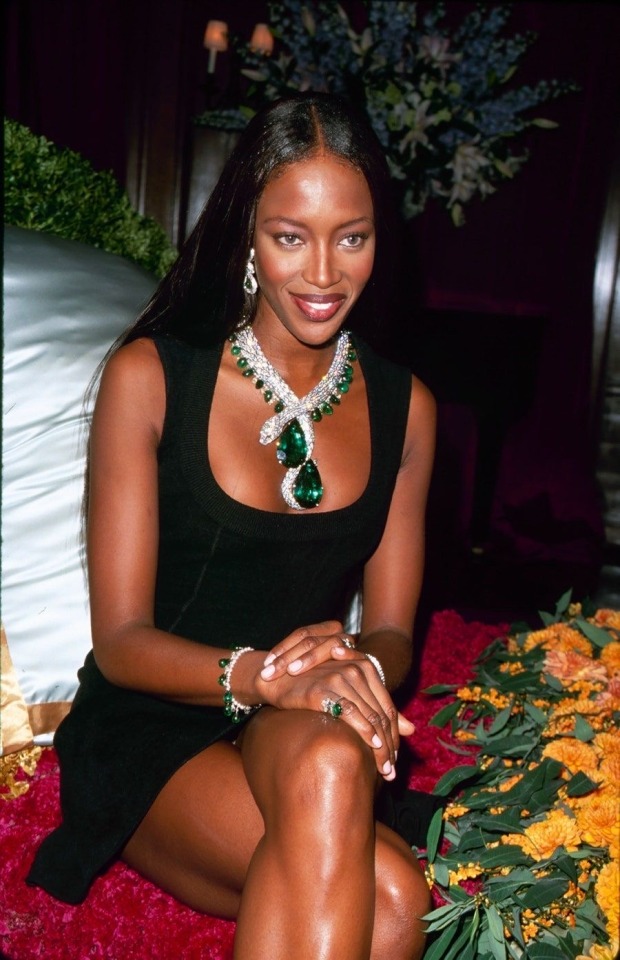



Interviews with Incredible Women
Here are some interviews that I think are absolutely brilliant, and I’ll explain why.
These women are trailblazers in what they do and I think, have really nailed the interview process down and you can tell because the more natural a person appears to be on camera, the more effort has gone into looking that way. Uneasiness, discomfort, shyness are easily spotted, especially with body language - and you can see the confidence just radiating from them.
Now, you may not like some of these women for whatever reason. I don’t really care about that - I’m simply looking at their oratorship, their presence in front of everyone and how they carry themselves. There’s obviously lots of powerful female orators, leaders and figures out there but I can’t possibly list them all so excuse me if I’ve missed out on your favourites - I’ll add them next time.
There’s a few things these women have in common:
1. They don’t always jump to answer. They think for a second or two before answering.
2. There are no filler sounds. They speak at a measured rate, which allows them to think ahead about their sentences.
3. They have a vast vocabulary.
4. They are not shy in disagreeing with the person in front of them. None of that diplomatic nonsense. There is clearly a strong sense of self identity and personality, unapologetically.
5. They show their vulnerabilities, weaknesses and hard times as thing of the past and accept them without a fuss- they don’t oppress themselves with it, and come across as strong survivors rather than wallowing in self pity. It’s what makes people admire them.
6. They don’t answer what they dont want to. And they beat around the bush with it, clearly stating that they will not answer those questions.
7. One thing I loved about Rekha’s interview - when questioned about an ex lover, she asks: “hey, is this interview about me or Mr Bacchan?” And it didnt come across as haughty or egoistical.
8. There’s feminineness in their strength. Them being strong in their stances is not masculine, overly aggressive or yelling - its firm, to the point, yet graceful.
This is what you should be looking at, carefully:
- body language
- Vocabulary
- Talking speed
- Gestures
- Facial expressions
- Voice modulation
- Expressing emotions
Video Links
1. Rekha
2. Princess Ameerah Al-Taweel
3. Meryl Streep
4. Indira Gandhi
5. Princess Diana
6. President Sirleaf
7. Lady Gaga
8. Naomi Campbell and Vivienne Westwood
9. Anna Karina
10. Michelle Yeoh
11. Mika Brzezinksi
#c suite#powerful woman#ceo aesthetic#personal growth#that girl#productivity#strong women#getting your life together#feminine energy#balance#female#women#speakers#how to speak#oratorship#interviews#powerful speaker#voice#communication#communication skills#public speaking#iconic women#icon#confidence#how to be confident#female mentors#stories#tv interview#famous
791 notes
·
View notes
Text
Social life affirmations 🦋🪩
(part 1 : social butterfly)

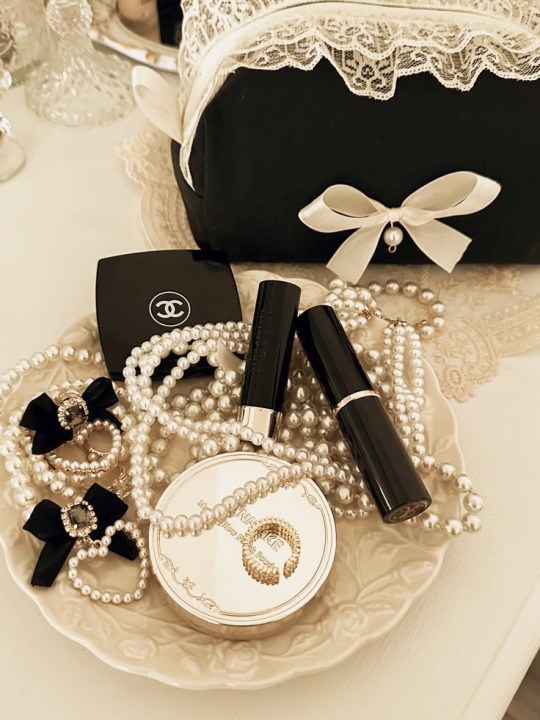



I have a bubbly, fun, outgoing extrovert personality.
I am the embodiment of a social butterfly.
Everyone admires my bubbly energy.
I am so talkative and I love talking.
I always let my personality shine.
I have such a good reputation.
I have great social skills and I can socialize with others easily.
I always have interesting things to say in any conversation.
I always have the right thing to say at the right time.
I'm a great listener.
I radiate positive energy everywhere I go.
People enjoy conversations with me.
I can keep any conversation going for hours.
All my conversations go fully smooth and fun.
I always have the best arguments ever.
Arguing is a child's play for me.
I effortlessly build fulfilling and harmonious friendships.
I always attract true, supportive and kind friends
I always have the time and the opportunity to go out with my friends frequently.
I always get invited to so many interesting social events.
I always go on cool adventures with my friends and create great memories.
Confidence is my middle name.
I am so confident in everything I do.
I am excellent at public speaking.
I have a beautiful clear voice and pronunciation.
People love to hear me speak.
I can be a magnet of fame whenever I desire.
It's so easy for me to become popular if i want to.
I have my desired number of followers on my desired social media account.
I am grateful
@venuslilgirl...🩷🌷
#venuslilgirl affirmations#social life affirmations#social butterfly#social butterfly affirmations#confidence affirmations#extrovert#extrovert personality#esfj#public speaking#public speaking affirmations#social skills#communication skills#friends#attract friends#manifest friends#friends affirmations#fame#popularity#manifestation#affirmations#law of attraction#law of assumption#affirm#positive affirmations#affs#affirmdaily#affirm and persist#manifesting#loa affirmations#mbti esfj
244 notes
·
View notes
Text
"Hang on," said Nobby, as they laid hands on the windlass of the portcullis. "There's someone down there."
"In the river?" said Colon.
He listened. There was the creak of an oar, far below.
Sergeant Colon cupped his hands around his mouth and issued the traditional policeman's cry of challenge.
"Oi! You!"
For a moment there was no sound but the wind and the gurgling of the water. Then a voice said: "Yes?"
"Are you invading the city or what?"
There was a pause. Then:
"What?"
"What what?" said Colon, raising the stakes.
"What were the other options?"
"Don't mess me about...are you, down there in the boat, invading this city?"
"No."
"Fair enough," said Colon, who on a night like this would happily take someone's word for it. "Get a move on, then, 'cos we're going to drop the gate."
Terry Pratchett, The Truth
#nobby nobbs#fred colon#mr. pin#mr. tulip#the truth#discworld#terry pratchett#the watch#guards#guard duty#night shift#interrogation#investigation#invasion#miscommunication#communication skills#trust#other options#the traditional policeman's cry of challenge#fair enough#long quote
124 notes
·
View notes
Text
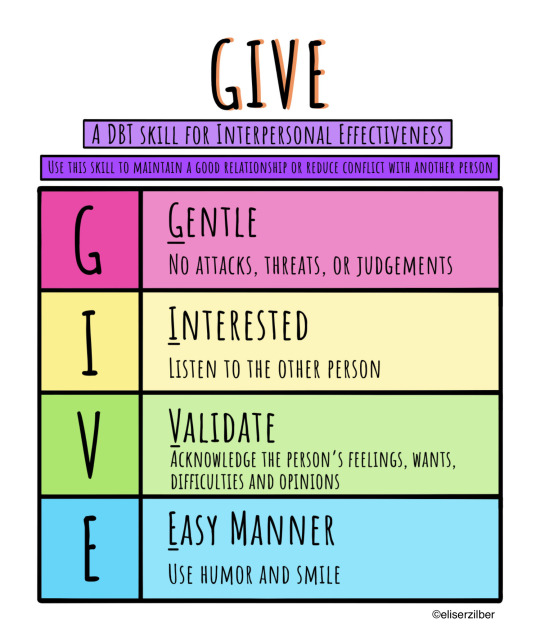
GIVE
Use this skill to maintain a good relationship and reduce conflict with another person.
G - Gentle: No attacks, threats or judgments.
I - Interested: Listen to the other person.
V - Validate: Acknowledge the person’s feelings, wants, difficulties and opinions.
E - Easy Manner: Use humor and smile.
*More DBT guides here*
#bpd life#borderline personality#borderline pd#borderline problems#bpd stuff#bpd problems#bpd thoughts#bpd fp#actually bpd#dbt group#dbt skills#dbt therapy#dialectical behavior therapy#communication skills#skill#give#give skill#gentle#listen#mindful#mindfulness#interpersonal skills#interpersonal effectiveness#interpersonal relationships#relationship#interpersonal communication#interpersonal relation#communication#resources#dbt
25 notes
·
View notes
Text
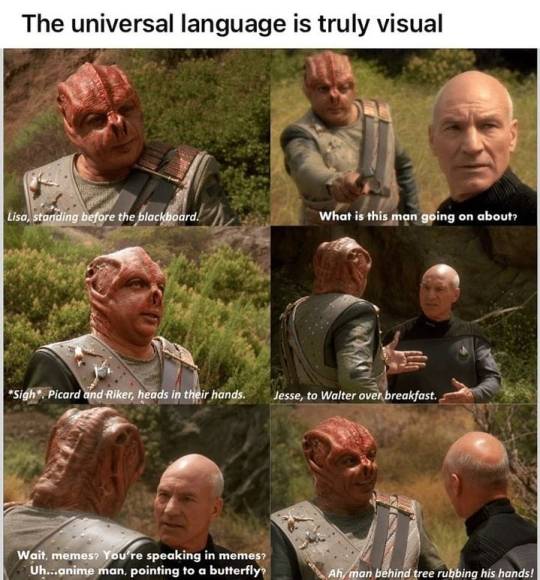
12 notes
·
View notes
Text
Just because I'm usually verbal and know some big words doesn't mean I always understand language. Even 'basic stuff' and it changes from day to day.
Sometimes The Illiad And The Odyssey is easy, other days Junie B. Jones is hard. Sometimes I say 'economical' and 'medical trauma' and 'expository', but other days I can only manage 'money' and 'bad doctors' and 'talk-y', sometimes not even that.
And no I don't have any control over if I use 'baby words'. Maybe it makes you uncomfortable to hear a teen say 'tummy' or 'potty', but that's not really my problem. Sometimes my brain can't form words like 'stomach' and 'bathroom', or even if it can my mouth can't make the sounds. And I deserve to communicate my needs and wants even when it can't.
Reading can be hard, hearing can be hard, writing can be hard, talking can be hard. Sometimes doing something as 'small' as trying to comprehend language can be exhausting, excruciating, impossible. And some people are always like that.
And of you can't support and recognize us, then you're not an ally to any disabled person, any autistic, any developmentally disabled person, any intellectually disabled person, etc.
#autism#actually autistic#developmentally disabled#neurological disability#communication skills#communication struggles#reading skills#writing skills#language#language comprehension#disability#disabled#semi rant
16 notes
·
View notes
Text
no because how do I tell someone I want their attention and I want to talk to them but about nothing in particular without playing angry or coming across as needy
i swear my communication is better but ive never cracked that code
help
#local shitpost#communication issues#communication#communication skills#if he ever finds my blog ill be doomed
7 notes
·
View notes
Text
I‘m in a t4t qpr and it’s honestly the best thing ever
additionally we’re also both nonbinary and some sort of agender. They are one of only a very few nonbinary people I know, and I just feel so lucky that I get to have a person with so similar experiences gender-wise as me as a partner.
because of us both being trans it is easy to talk about dysphoria and gender roles and what we’re comfortable with, and that really helps us in communication. We are able to offer each other unique accommodations for things one of us enjoys doing so the other can participate and don’t question the reality and importance of doing that.
One good example is me being a swimmer and loving the water and swimming and stand-up-paddling and all that and them getting really disphoric from swimsuits. (I do too, but the joy of swimming overwhelms it) So what I did is I offered him a wetsuit to combat the disphoria. Even though she didn’t really swim in the end I am happy they got to experience my point of view and the water.
#qpr fluff#communication skills#t4t#t4t qpr#qpr pride#queer platonic relationship#queer platonic partner#qpr positivity
15 notes
·
View notes
Text
Bitches are interested in literature and poetries and still fall for someone who has lack of communication skill .
Andddd ! ............yes I'm the BITCH
#love#bitches#badbitch#intresting#literature#literally#literacy#poetry#poetsandwriters#writers and poets#female poets#disappointed#litreature#black literature#literary#communication#skills#communication skills#lackluster#poetscommunity#poem#fall in love#fall for the wrong person#fall#i'm broke#dramatic#makes me sad#makes me feel bad#makes me want to die#makes me so emotional
86 notes
·
View notes
Text
Femme Fatale Guide: Types of Relationships To Help You Thrive In Life
Table of Contents:
Healthy Relationship With Yourself
Peer-To-Peer Relationship
Mentorship Relationship
Goal-Oriented/Accountability-Focused Relationship
Emotionally-Intimate Relationship
Physical/Sexually-Intimate Relationship
Acquaintance Relationships
Second-Degree Relationships
Types of Relationships:
Healthy Relationship With Yourself: Internalize and act with the knowledge that you're worthy of love, care, and nourishment, and have unconditional permission to work towards your goals & dream life. Eat healthfully, drink plenty of water, remain well-rested, move your body daily, maintain proper hygiene/a clean home, invest in your appearance to feel your best, live as a life-long learner, establish healthy habits/routines, get your finances in order, establish and maintain boundaries, make positive self-talk a priority.
Peer-To-Peer Relationship: Aka friendships, which are intended to offer mutual support and joy in life. These friendships thrive on having similar values and interests, which makes these individuals your greatest cheerleaders, advice givers/receivers, and partners in crime to have fun or offer platonic love/emotional support during traditional or difficult seasons in your life. Peer-to-peer relationships should add mutual excitement, encouragement, and emotional nourishment, and provide a soundboard for confidential information exchange, ears to listen without unnecessary or superficial judgment, and solicited advice from someone who has your best interest in mind.
Mentorship Relationship: This could be a boss, teacher, professor, aunt, uncle, or another trusted adult(s) who can guide you based on their more extensive life experience/wisdom. You can have one or several mentors at any life stage and for different purposes. These people should be trustworthy (keep your information confidential unless you state otherwise) and express their advice through the lens of your best interest rather than their own personal desires or biases (at least those left unchecked). Ensure you feel safe around these people, and their presence in your life is a mutually-nourishing relationship that allows you to grow personally, professionally, and relationally.
Goal-Oriented/Accountability-Focused Relationship: A coach, mentorship, or friendship based on the achievement of a particular goal or practice. This type of relationship can manifest as an accountability partner or support group. A therapist can also fulfill this role in your life (but like, a coach, this relationship is a one-way street to offer you emotional support/tools & resources). Some reasons for an accountability-oriented relationship include helping you achieve a certain health/fitness goal, establish better routines, advance in your career, let go of unhealthy habits, patterns, or addictions, better manage your finances, or help you get your other relationships (family, partner, friends, self-talk, boss, co-workers, etc.) in order.
Emotionally-Intimate Relationship: Someone with whom you feel an unwavering emotional closeness and connection. This person can be a partner you're involved with sexually/physically intimate with or not. Asexuality exists, of course. And emotional intimacy can definitely exist in close platonic relationships (like your best friendships) without any romantic or sexual feelings. These relationships are important because they allow you to let your emotional walls down and be your vulnerable, authentic self.
Physical/Sexually-Intimate Relationship: This relationship could be with a romantic partner, FWB, with multiple partners, purely with yourself, or somewhere in between. If you have sexual needs, it's important to find pleasurable ways to satisfy these desires in a way that makes you feel most fulfilled and respected. Let go of any shame you experience when exploring this side of yourself. Experiment and learn what you like/dislike/fantasize about. Use this information to elevate your practice and communication with any partner(s) for a heightened, more enjoyable, and potentially closer emotionally-bonding experience.
Hobby/Interest-Centric Relationship: These relationships can extend from co-workers to your friends in a certain class/the one friend you go on weekly walks with, follow a particular TV show with, exchange beauty tips with, "going out" friends, etc. While these connections aren't vulnerable to the degree of a close friendship/relationship, it is important to have some relationships that are purely based on fun, light-hearted conversations, and mutual hobbies/interests/lifestyles. Having someone to share these mutual experiences with helps you feel more connected to your environment/communities, not feel isolated/lonely when your friends, family, or intimate partner has different hobbies, career aspirations, or daily routines/lifestyle compared to you, and provides a mutual soundboard on issues, insights, and exciting moments in this particular area of your life.
Acquaintance Relationships: Everyone needs those friends, co-workers, or classmates they can just chat with when at a party, a group meeting, dinner, a special occasion, to grab a quick lunch or coffee, etc. These people are fun to be around and allow you to indulge in light, easy conversations to offer temporary social support/fulfillment. These relationships also expand your network for professional opportunities, making new friends, finding dates/a potential partner, interest groups/new hobbies, referral services/classes/spaces, and other contacts that can enrich your life.
Second-Degree Relationships: These are friend-of-a-friend type connections who can be/become your future business partners, romantic/sexual partners, co-workers, investors, hairdressers, realtors, stylists, finance managers, etc. Be ready to reciprocate these offers and be this person in others' lives, too. As your network gets broader and more dynamic, better chances and potential there is to connect with the right people to help you achieve your goals, desires, and overall life satisfaction. Success and efficiency rarely – if ever – exist in isolation.
#relationships#interpersonal relationships#networking#making friends#dating#social interaction#socializing#social connections#interpersonal skills#communication skills#networking opportunities#social networks#life advice#glow up tips#glow up era#level up journey#femme fatale#higher self#it girl#high value woman#high value mindset#success mindset#healthy lifestyle#successhabits#female excellence#dream girl#queen energy#female power#femmefatalevibe
745 notes
·
View notes
Text

I always have interesting things to say in any conversation.

#venuslilgirl affirmations#social butterfly affirmations#social butterfly#social skills#social life affirmations#communication skills#friends affirmations#confidence affirmations#manifestation#affirmations#law of attraction#law of assumption#positive affirmations#manifesting#self concept#affirm#affirmdaily
137 notes
·
View notes
Text
Uncommon Words for Uncommonly Precise Thinking
Have you ever struggled to find the right word to convey a specific idea or concept? In a world where language is constantly evolving, it can be tough to keep up with the latest terms and phrases. But precision in language is crucial for clear communication, and sometimes it takes a more uncommon word to get the job done.
In this post, we'll be introducing you to five uncommon words that can help you express yourself more precisely and accurately. Whether you're a writer, a speaker, or just someone who loves to learn new words, these terms are sure to expand your vocabulary and improve your communication skills.
Bricolage
Have you ever had to get creative in order to solve a problem or complete a task? If so, you've engaged in bricolage – a French word that refers to the process of using whatever resources are available to you in order to get the job done.
For example, if you're trying to fix a broken lamp and you don't have the right parts, you might use a paper clip, a rubber band, and a bit of tape to hold it together. That's bricolage in action!
Using the word bricolage can help you describe creative problem-solving or resourcefulness in a more precise and sophisticated way. And it's not just for household repairs – bricolage can apply to all sorts of situations, from business to art to politics.
Incisive
When you need to describe someone or something as sharp or insightful, the word incisive is the perfect choice. It comes from the Latin word "incidere," which means "to cut into," and it refers to the ability to cut through confusion and get to the heart of the matter.
For example, you might say that someone has an incisive mind, or that their comments were incisive and insightful. Or you could describe a piece of writing as incisive, if it cuts through the noise and gets to the point.
Using incisive in your language can help you convey a sense of clarity and precision. It's a great way to show that you've really thought something through and can see it clearly.
Ratiocination
If you want to describe logical, well-reasoned thought, look no further than ratiocination. This word comes from the Latin "ratio," which means "reason," and it refers to the process of using reason and logic to arrive at a conclusion.
For example, you might say that someone used ratiocination to solve a puzzle, or that their argument was based on ratiocination rather than emotion. Ratiocination is a great word to use when you want to show that you've thought something through carefully and come to a logical conclusion.
Apotheosis
Have you ever reached the peak or pinnacle of something? If so, you've achieved apotheosis. This word comes from the Greek "apotheoun," which means "to deify," and it refers to the act of elevating something to the level of a god or goddess.
For example, you might say that someone's success was the apotheosis of their career, or that a particular event was the apotheosis of their efforts. Using apotheosis can help you convey a sense of ultimate accomplishment or excellence – it's a way to really drive home the idea that something has reached its highest possible level.
Regimen
When you need to describe a systematic plan or course of action, the word regimen is the perfect choice. It comes from the Latin "regimen," which means "rule" or "governance," and it refers to the way that something is governed or regulated.
For example, you might say that someone is following a strict regimen in order to get in shape, or that a company has a well-organized regimen for handling customer complaints. Using regimen can help you convey a sense of structure and organization – it's a way to show that something is being done in a deliberate and consistent way.
Conclusion
We hope you've enjoyed this introduction to five uncommon words that can help you express yourself more precisely and accurately. Whether you're looking for a way to describe creative problem-solving, sharp insights, logical thinking, ultimate accomplishment, or a systematic plan, these words have you covered.
Remember, precision in language is crucial for clear communication. Expanding your vocabulary and learning new words is a great way to improve your communication skills and make your writing and speaking more effective. So don't be afraid to try out these uncommon words – you might just find that they're the perfect fit for what you're trying to say.
#Vocabulary#Communication skills#Language learning#Precise language#Uncommon words#Expanding your vocabulary#Writing tips#Speaking tips#Regimen#Apotheosis#Incisive#Bricolage#ChatGPT
40 notes
·
View notes
Text
Silence is also a reply; infact it is the ONLY absolute reply— one that most aren't eloquent in. Like how pauses create emphasis and connection to what is being said, Silence is the breath of communication— the basis of understanding.
Unless you understand, you're incapable of love. To understand is to observe Silence. This is why communication is said to be mostly nonverbal. If you listen with your heart, Silence is a synonym for attention.
—L.A.M.P
#poets on tumblr#poetry#poem#poeticstories#prose poetry#prose poem#new poets society#spilled poetry#poets corner#silence#understanding#communication skills#dissolveintolight#limitlessend#L.A.M.P
20 notes
·
View notes
Text
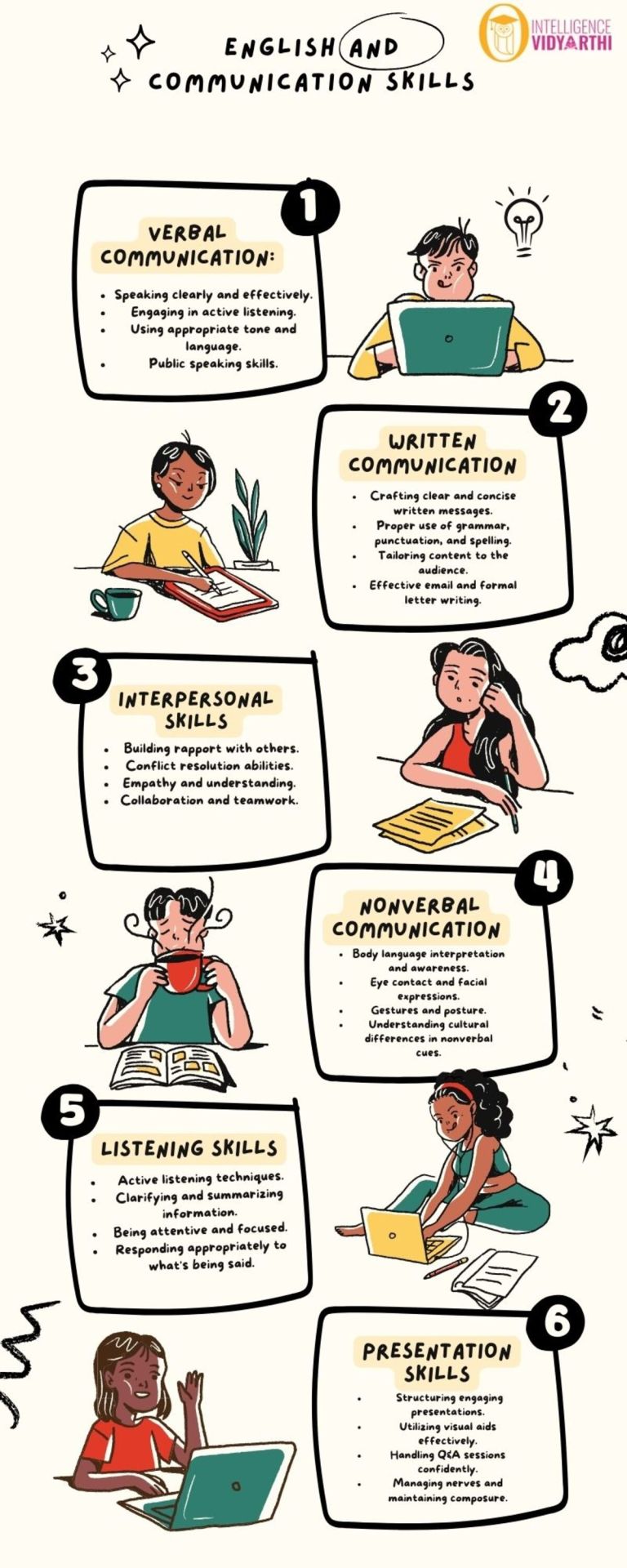
2 notes
·
View notes